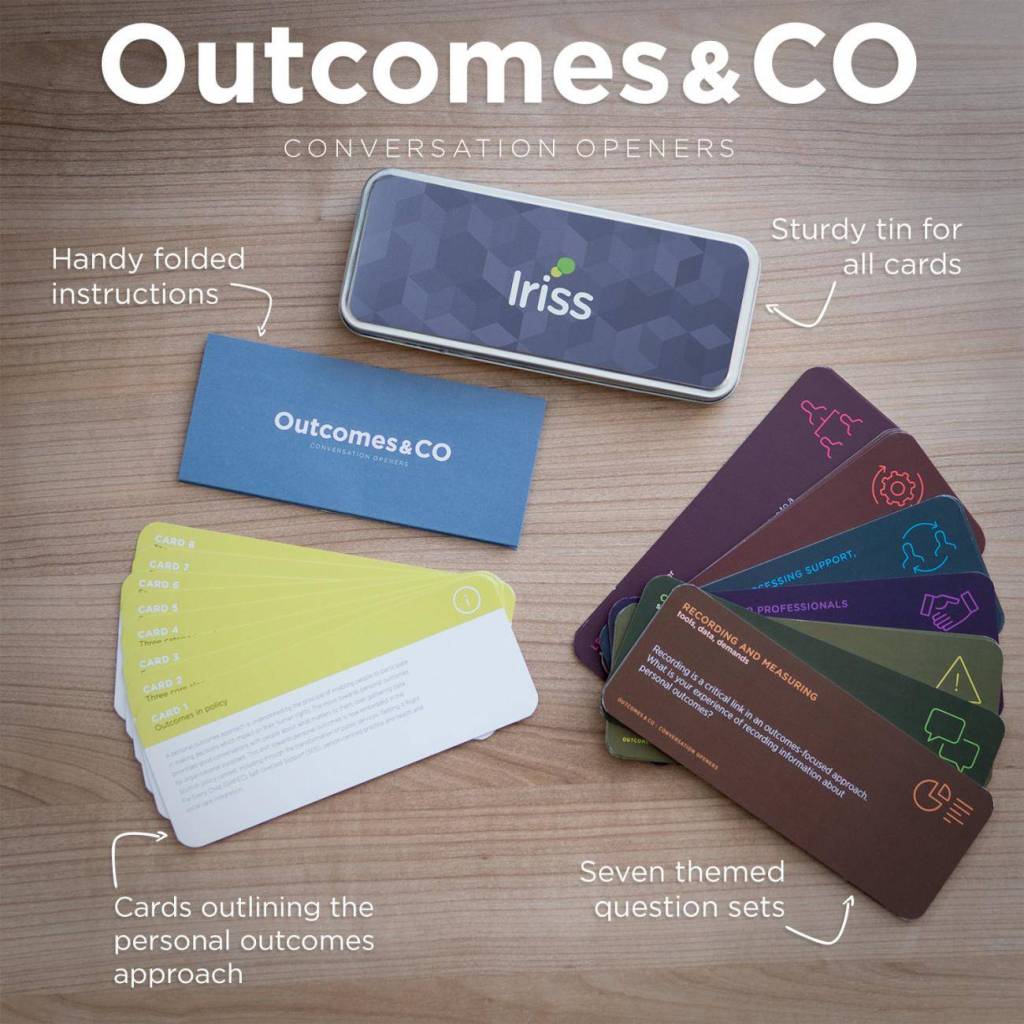Key points
- Embedding outcomes within an organisation takes time but organisations report that it is time well spent
- It can be helpful to think about three components of a personal outcomes approach: engagement, recording and use of information
- It is not enough to produce tools and provide one-off training events. Practitioners need ongoing support and supervision to support the practice changes
A personal outcomes approach requires organisations to focus on what matters to people and their families. This may sound simple. Focusing on outcomes reflects many of the values embodied in professional training. But too often our system tends to focus on what matters to services. The Talking Points practical guide includes review of the system changes required.
A personal outcomes approach involves finding out what matters to people and recording that to inform decisions at the individual level. The information can also link up to inform service, organisational or national outcomes.
The Care Inspectorate has resources to support managers to embed outcome focused plans in their organisations. The adult planning resources is included here.
Evidence shows that other forms of support are required for outcomes focussed practice. Consideration should be given to developing outcomes focussed supervision for staff, along with continuing opportunities to share learning and practice stories.
Leadership, Supervision and Risk Enablement
Practitioners cannot be expected to be outcomes focussed in their practice if their organisation is not outcomes focused too.
Step into Leadership
The Scottish Social Services Council website, Step into Leadership, can help you find resources and information to develop your leadership skills. The site is designed for frontline workers, people who use services, managers and strategic leaders working in health and social care.
Staff supervision resources
We worked with colleagues in North Lanarkshire in 2010 to produce to support an outcomes approach in support and supervision for practitioners.
Changing the conversation in the organisation
To get started you might want to use the Outcomes & CO: Conversation Opener cards by Iriss. These cards are designed to help to change the conversation in the organisation as a whole, and include prompts to think about outcomes, risk enablement, partnership, carers and leadership.

Risk enablement
A key concern for staff and managers in trying to focus on what matters to people is to be able to work in a balanced way with risk. This includes balancing what matters TO the person as well as what matters FOR them.
The SSSC resource A Risk Worth Taking includes three scenarios which require thinking about risk enablement in the context of service integration, a changing policy landscape and resource constraints. It includes expert comments on each scenario to help people think through their position on risk and outcomes. The facilitation guide supports team learning.
The Personal Outcomes Network held a workshop in 2019 on risk enablement (see report). Presentations and tools shared on the day are available here.
- Something thrilling – outcomes and risk
- Outcomes – Enabling Risk
- Adding Life to Years
- June Gordon and Janet Thompson, NHS Grampian, shared their risk enablement tool and flow chart.

